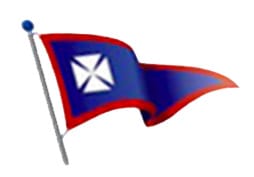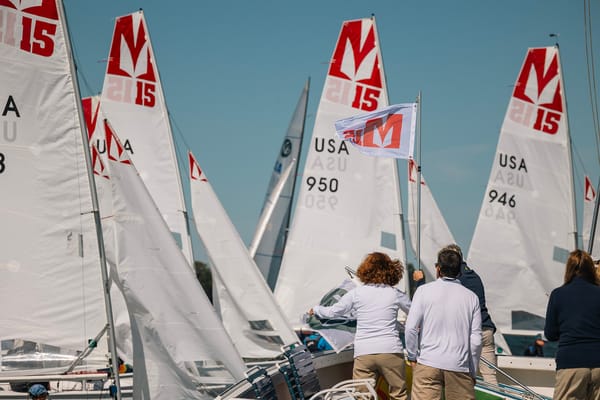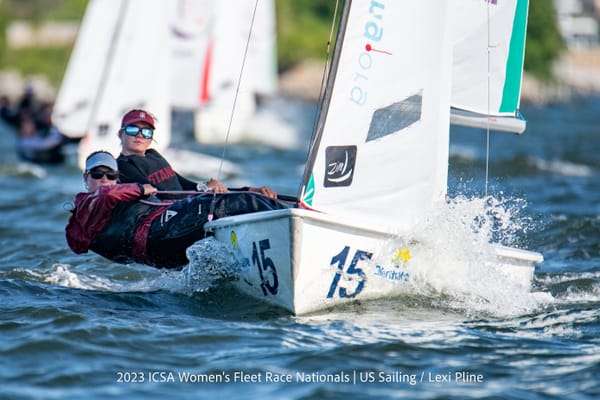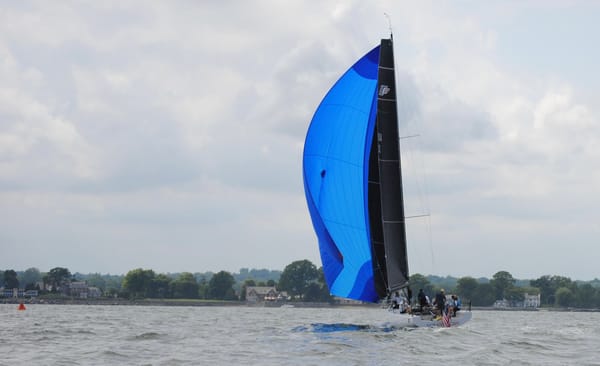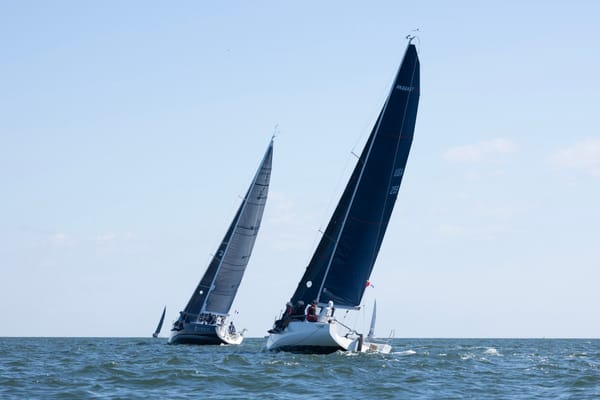Winning the 2024 Bermuda Short-Handed Return
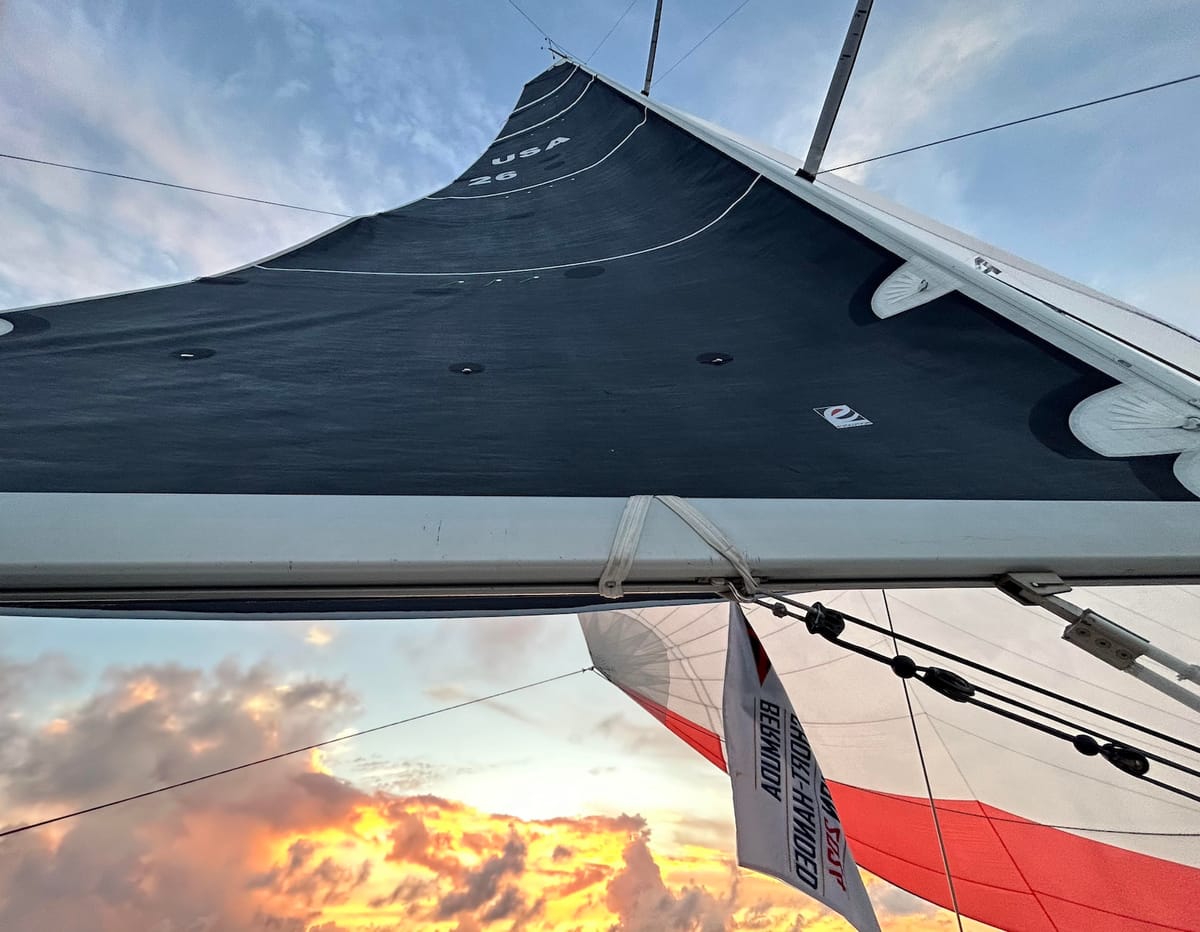
This year's Bermuda Short-Handed Return race saw AYC/NYYC members Peter Becker and Will McKeige winning their respective classes (results). Peter raced Young American, a J/105, with his daughter Carena Becker, and Will was on Groupe 5, a Figaro 2, with Zach Doerr. Along the way, they faced some dramatic conditions. Groupe 5 blew through two spinnakers in their push through a storm to catch a band of pressure.
"Our routing sent us right into a front," Will said. "We knew it was going to be really rough but the Figaro 2 is made strong. In the thick of it, blowing 30-40 knots and steering up and down 15-foot waves, we had total confidence in our boat. Having twin rudders also gave us a lot of stability and we ended up touching 21 knots just under a J3 and reefed main."
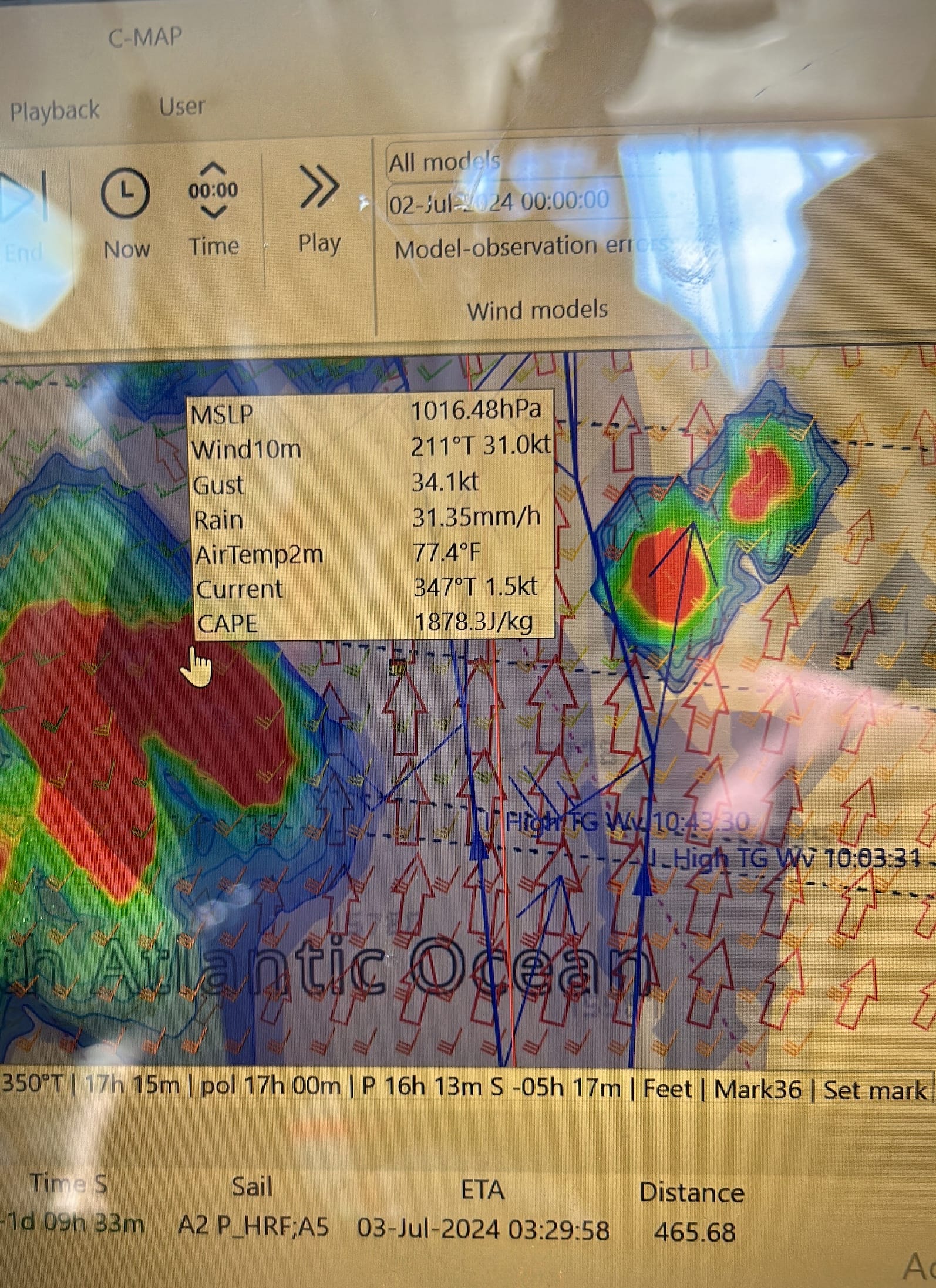
The race itself has a fun origin. In 2021, Peter Becker decided to do the Bermuda 1-2 (single-handed there, double-handed back) as a "way to break out of COVID," he said. Peter had spent his life avoiding short-handed sailing because he thought of it more as adventuring rather than racing. The 2021 Bermuda race changed his worldview entirely.
Peter was so hooked that he called David Tunick, the chair of the New York Yacht Club's Seamanship Committee, and encouraged him to create a formal return race. Thus was born the BSHR.
This year's race also had a fascinating through-line to some important AYC history. In 2013, Peter took the lead on the Young American junior big boat program, with Will McKeige and Carena Becker part of the initial group of teenagers. They spent 3 years getting ready to race Bermuda on the boat High Noon and ended up getting line honors.
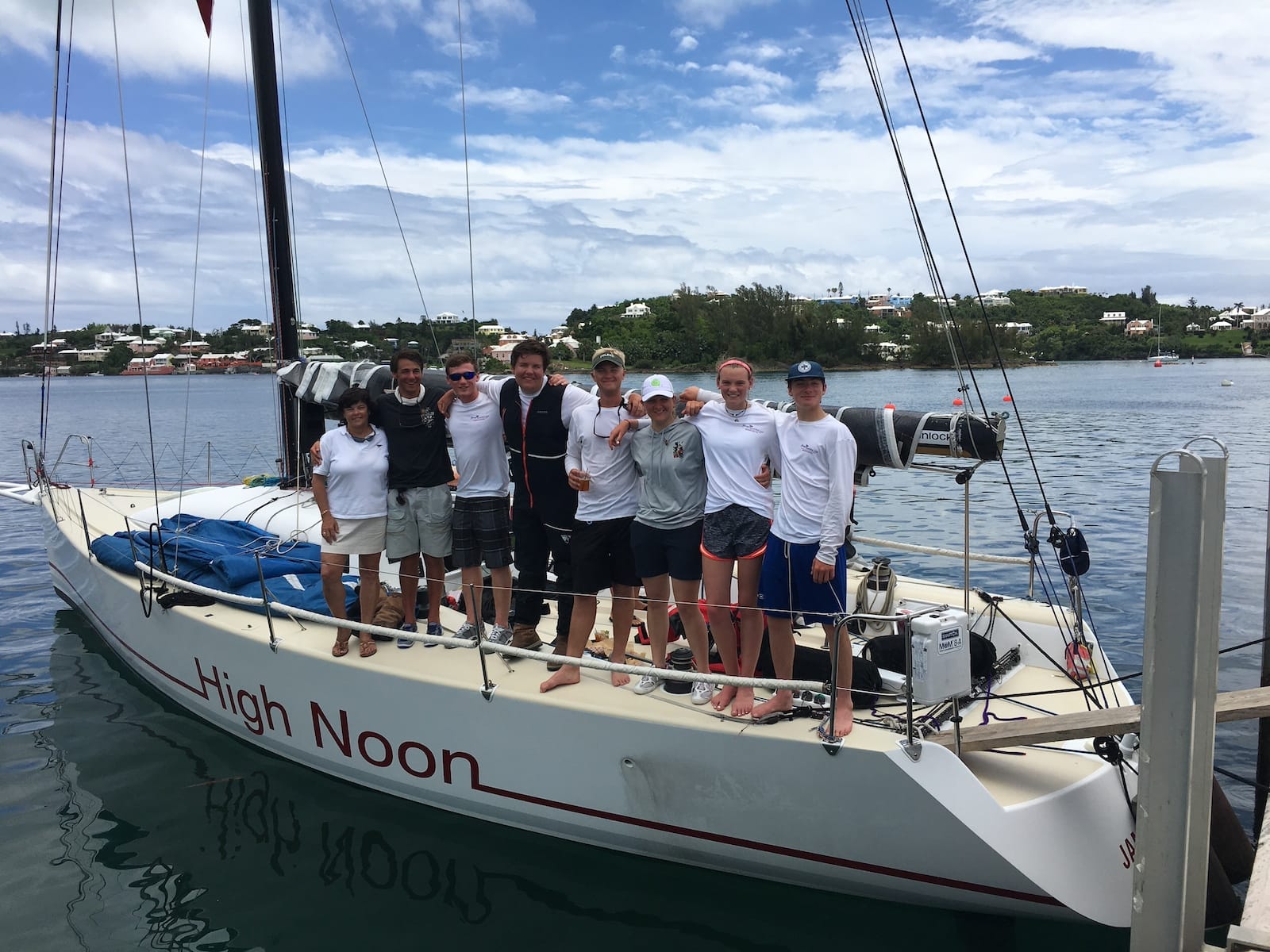
Peter said, "In 2016 with High Noon, we opened everyone's eyes to the potential of a youth team. The magic sauce was that socially the kids were friendly and had good energy together. They were passionate about what we were doing, and we fueled that passion by giving them absolute freedom. We supervised closely but didn't give them a leash. We wanted to teach them to be self-reliant. We taught them about choices. Instead of a rule about life jackets, we talked to them about when and why to wear one. It was about learning about how to become salty as a lifelong journey."
Will McKeige remembers the program fondly. Somewhat cheekily, he said to Bell42, "Peter taught me everything, so if I have a faster boat I can look behind and I know exactly what he is doing."
Peter's approach to short-handed sailing has evolved and now he sails with two basic edicts. First, no swimming allowed ever (related to this, Peter was always on a harness). Second, zero tolerance for sleep deprivation. "Nothing good happens when you're tired," Peter said. That said, he had to learn how to sleep 20-30 minutes at a time.
Now Peter thinks that short-handed sailing is the safest sailing there is. "A couple things happen," he said. "You don't go out there unless you think you're prepared and competent. You need people who can do it all and have 100% duplication of skills. And once you're there, you quickly find out it's about self-care — 360 degree observation: what's my risk, what's going on? It's non stop. And so while I've had moments of stress or concern, I've never been scared."
And while Groupe 5 had their intense passage through the storm, it wasn't all rough sailing. "You leave Bermuda and it's blazing hot and you're desperate for a cloud," Will said, "And then we got the opposite. But we made it out of the storm and it turned into a nice day and we were able to dry everything off. We set our A1 and had the perfect angle to bring us right in."
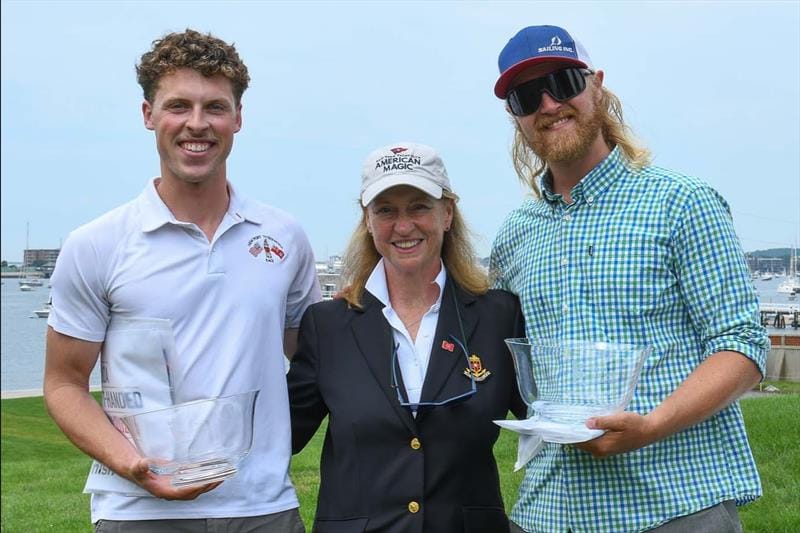
Congrats to both teams for winning their classes. It is also worth noting that in the Newport-to-Bermuda race, Peter Becker (with Adrian Blanc) came in third in double-handed division 1 and Zach Doerr (with John Feleciano) won division 2. If you're interested in short-handed sailing, you might enjoy this video interview of Zach Doerr.
